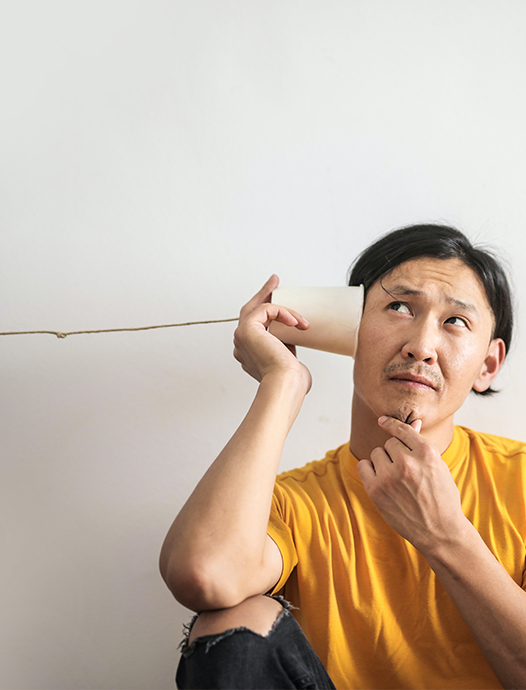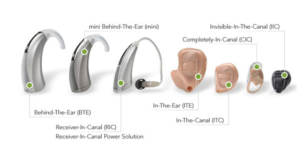








Our current services include:
Our current services include:
Hearing Protection
When it comes to hearing, prevention is better than cure.
We are Hear 2 Help with the fitting of individually made, customized hearing protectors from the best manufacturers, for even the most diverse requirements. From hunting and competitive shooting, to industrial workers and musicians – we really are Hear 2 Help you hear with maximum clarity.
Our other services also include:
• Noise protection: Hobbies, Hunting, Industrial workers
• Swimming plugs
• Sleeping plugs
• Batteries for hearing aids
• All accessories to hearing aids: Remotes, chargers, Bluetooth Devices, Microphones
Hearing Screenings Tests
We also offer free Hearing Screening to all Pensioners, helping determine hearing thresholds and monitor hearing over time.
Complete and Comprehensive Diagnostic Hearing Tests
If you suspect you may have hearing loss, we recommend a Complete and Comprehensive Diagnostic Hearing Test, to determine if there could possibly be a hearing problem, as well as the type and severity of the hearing impairment.
The process is painless, comfortable and safe, and is the first in the intervention process.
Testing is available to individuals, age 3 and upwards.
Hearing Protection
When it comes to hearing, prevention is better than cure.
We are Hear 2 Help with the fitting of individually made, customized hearing protectors from the best manufacturers, for even the most diverse requirements. From hunting and competitive shooting, to industrial workers and musicians – we really are Hear 2 Help you hear with maximum clarity.
Our other services also include:
• Noise protection: Hobbies, Hunting, Industrial workers
• Swimming plugs
• Sleeping plugs
• Batteries for hearing aids
• All accessories to hearing aids: Remotes, chargers, Bluetooth Devices, Microphones
Hearing Screenings Tests
We also offer free Hearing Screening to all Pensioners, helping determine hearing thresholds and monitor hearing over time.
Complete and Comprehensive Diagnostic Hearing Tests
If you suspect you may have hearing loss, we recommend a Complete and Comprehensive Diagnostic Hearing Test, to determine if there could possibly be a hearing problem, as well as the type and severity of the hearing impairment.
The process is painless, comfortable and safe, and is the first in the intervention process.
Testing is available to individuals, age 3 and upwards.
Test your own hearing
Start the process of restoring your hearing health by testing your own hearing.
Improve your own hearing
Continue the process of restoring your hearing health by downloading the HearZA app and improving your own hearing.
These brands are Hear2Help!
At Hear2Help, we are proud to have partnered with these brands, to bring you the best quality products on your journey to hearing health.




Finance your hearing aids
Don't let your budget get in the way of your road to hearing recovery, find out more about how to finance your hearing aids.
Signs and symptoms of hearing loss may include:
• Muffling of speech and other sounds
• Difficulty following a conversations
• Difficulty understanding words, especially against background noise or in a crowd
• Frequently asking others to speak more slowly, clearly and loudly
• Frequently asking others to repeat what they said
• Needing to turn up the volume of the television or radio
• Withdrawal from conversations
• Avoidance of some social settings
An individual’s hearing loss can vary to a great degree in the pitch (frequency) of the sounds being heard and the intensity (loudness) of the sounds heard. This video will explain it in more detail:
Auditory Processing Disorders occur when the brain has difficulties processing the information contained in sound, such as understanding speech and working out where sounds are coming from (localization). This form of hearing loss is easily seen in children and could possibly lead to various spelling and reading difficulties. A Speech, Language therapist is best equipped to facilitate this disorder.
Conductive Hearing Loss occurs when there is a problem with the Outer or Middle Ear which interferes with the passing sound to the Inner Ear (the mechanical movement of the soundwaves). It can be caused by something as simple as earwax build up in the ear canal. An Ear Infection, a punctured eardrum, a fluid build-up, or abnormal bone growth in the Middle Ear such as Otosclerosis could be some more serious conditions that should be urgently attended.
Sensorineural Hearing Loss occurs when the hearing organ, the Cochlea, and/or the auditory nerve is damaged or malfunctions so it is unable to accurately send the electrical information to the brain. Sensorineural Hearing Loss is almost always permanent.
It can be genetic or caused by the natural aging process, diseases, accidents or exposure to loud noises such as Noise-induced Hearing Loss and certain kinds of chemicals and medications. Auditory Neuropathy is another form where the nerves that carry sound information to the brain are damaged or malfunction.
Technologies such as Hearing Aids and Cochlear Implants could reduce the effects of having Sensorineural Hearing Loss.
A Mixed Hearing Loss occurs when both Conductive Hearing Loss and Sensorineural Hearing Loss are present. The sensorineural component is permanent, while the conductive component can either be permanent or temporary.
Hearing loss can have a range of consequences that depends on the individual and their unique type of hearing loss. The most common experience is a reduced ability to understand other people, particularly in noisy situations. This can impact how you interact with family and friends, making it difficult to learn at school and or perform your duties in the workplace competently.
Hearing loss can have a range of consequences that depends on the individual and their unique type of hearing loss. The most common experience is a reduced ability to understand other people, particularly in noisy situations. This can impact how you interact with family and friends, making it difficult to learn at school and or perform your duties in the workplace competently.
Research has demonstrated that children with a mild or moderate hearing loss can have difficulties learning and developing the necessary speech and language skills that help foster self-esteem and the ability to succeed at school and gain employment. If not detected early, a hearing loss can change the way children speak, learn and interact with others. Being aware of a child’s hearing abilities soon after they are born, e.g. through neonatal hearing screening, gives hearing health professionals time to manage a young child’s hearing loss. Once a hearing loss is detected, and appropriate measures put in place, a child can usually continue down the pathway of speech and language development.
If left untreated, hearing loss can have other negative social and health impacts in both adults and children that go beyond the hearing impairment itself and include reduced quality of life and well-being. Potential health impacts from hearing loss can include headaches, muscle tension, and increased stress and blood pressure levels. Some studies have linked untreated hearing loss in adults to depression, fatigue, social withdrawal and dementia.
1. Depression
2. Social isolation
3. Financial implication of losing a job
4. Cognitive decline
5. Impaired memory
6. Safety concerns
7. Greater chance of falling
8. Greater chance of dropping / losing items
9. Increased anxiety and frustration



